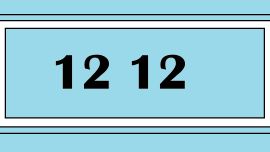Medical residents who work in Buenos Aires public hospitals have successfully compelled the City Legislature to suspend a law that have modified their rights and conditions as workers.
After five days of demonstrations and resident boycotts as hospitals, lawmakers in the capital voted unanimously last Thursday to annul the law and create a new one with the participation and input of residents and doctors over the course of the next month.
Buenos Aires City Mayor Horacio Rodríguez Larreta put the Resident’s Law up for a vote on November 28 after just two sessions of debate. Speaking to the local Pagina12 daily, some members of the Asamblea de los Residentes y Concurrentes — the representative body of resident physicians — speculated this week that was part of a bid to pass the bill before the close of this year’s assembly to avoid the kind of opposition that ultimately resulted nonetheless.
The Assembly of Residents took issue with the law on a few fronts. First, it neglected to give residents the status residents of “health workers,” despite the fact that they have completed medical school. It “doesn’t clearly state who we are,” a statement from the group read.
Second, the legislation mandated a minimum of 36 hours of weekly work for residents — six hours more per week than other professions — with a maximum of 64 hours. It stipulated no eligibility for overtime pay for required 24-hour on-call shifts known as guardias or weekend and holiday work. Assembly representatives said this “crystallised the exploitation” of residents.
Finally, residents said the government’s law didn’t address existing differences between residents and other doctors as well as failed to guarantee better working conditions, like having supervision on long shifts for first-years, said Lain Bullentini, a resident in general medicine at the Argerich Hospital. It also created a discipline code that, according to Bullentini and others, would have made it easier to suspend or penalise residents for infractions as compared to their “health worker” counterparts.
The life of a resident is far from glamorous. They work long hours for little pay, and they’re required to work roughly one guardia per week in addition to their regularly scheduled shifts. Residents say they’re also subjected to a hospital hierarchy in which they’re required to curry the favor of department chiefs or risk being given inferior treatment.
“We work up to 90 hours a week, often without supervision, including on our 24-hour shifts. And many of us end up averaging around 100 pesos per hour,” Bullentini said.
Debate around the Resident’s Law quickly took on a partisan face. Larreta, an ally of Mauricio Macri who won his re-election bid in October, was criticised by many in the opposition for the way that he jammed the legislation through the approval process.
Not only was the deliberation process accelerated, but the actual vote took place when many of the lawmakers who would’ve voted against it were out of the building, trying to break up the violence that had started to emerge between protesters and a few police officers who used tear gas on the crowd.
Opposition leader Gisela Marziotta called the move “unacceptable.”
“[This law] can’t be looked at without the question in the background around the continued advance of Larreta against the sources of work and the quality of public health services,” he told Pagina 12.
Residents and allies mobilised outside the City Hall building last Thursday, beginning what would be nearly a week of organised demonstrations that, at some points, spanned the width of Corrientes Avenue and included hundreds of residents boycotting their shifts. “Without residents, there can be no hospitals,” they chanted, hoping to highlight how integral they are to the system.
“The health system in Argentina is based on labor exploitation,” said Bullentini. “We won’t tolerate it anymore. Give us better conditions or we won’t return.”
Larreta’s office did not respond to the Times’ request for comment.
The wave of demonstrations proved successful for the residents, prompting the city legislature of Buenos Aires to anull the law and commit to creating a new one with the input of residents and other members of the medical community. Bullenti called it a “great victory,” made possible by “years” of building a movement that people now recognise as “legitimate.”
Moving forward, residents will ask for comparable status to their fellow doctors, reduced hours and increased pay or overtime eligibility. They’ll also push for shorter on-call shifts and more frequent supervision from their superiors during work, among other things.






















Comments